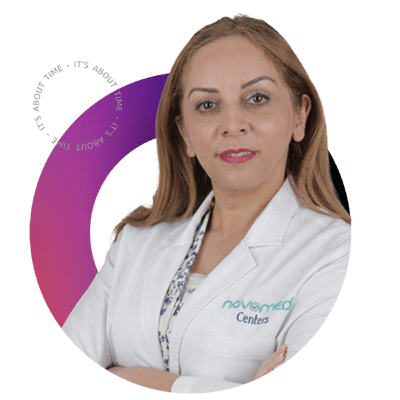Overview
A heart attack, also known as a myocardial infarction, is a life-threatening condition that occurs when a part of your heart muscle is clogged, preventing it from getting the blood it requires. The most common cause of a heart attack is coronary artery disease, which leads to a blockage in the arteries supplying blood to your heart.
A heart attack can lead to irreversible cardiac damage and death if not treated immediately. If you believe you are at risk of having a heart attack, you should get emergency medical care.
What are the symptoms of heart attacks?
Symptoms of a heart attack vary from one person to another; you may experience minor symptoms, severe ones, or none at all. For some people, heart attacks happen suddenly, while others have warning signs that appear hours, days, or weeks in advance.
Common symptoms of a heart attack include:
- Pressure, soreness, or painful sensations in the chest
- Weakness, tiredness, or dizziness
- Indigestion, heartburn, or nausea
- Discomfort or pain in the jaw, neck, arm, shoulder, or back
- Shortness of breath
- Fast or irregular heartbeat
What are the causes of heart attacks?
Most heart attacks are caused by coronary artery disease, which causes one or more of your heart coronary arteries to become clogged, preventing blood from flowing as well as it should. Plaques (cholesterol-containing deposits) are usually the cause of coronary artery disease because they can cause arteries to constrict, limiting blood flow to the heart. A total or partial blockage of a heart artery can induce a heart attack. Other factors that may cause a heart attack include infections such as COVID-19 or spontaneous coronary artery dissection (SCAD), which happens when there is a tear inside your heart artery.
How are heart attacks diagnosed?
During the consultation, the cardiologist will review your medical history, ask about your symptoms, and check your blood pressure, pulse, and temperature. They may order tests to examine your overall heart health and identify a heart attack, including:
- An electrocardiogram (ECG or EKG) to monitor the electrical activity of your heart and examine your cardiac muscle.
- Blood tests to diagnose a heart attack and detect any ongoing cardiac damage.
- A chest X-ray to check the condition and size of the heart and lungs.
- Echocardiogram, which uses ultrasound waves to create images of the heart. This test can reveal the flow of blood through the heart and its valves to see if you have any heart damage.
- Cardiac catheterization, which involves using a catheter (a long, thin tube) that is placed into an artery in the leg and guided to the heart. During this procedure, the doctor injects a dye into the catheter to highlight the arteries and check for any blockage.
How are heart attacks treated?
To prevent cardiac damage, you should receive medical treatment within 1 or 2 hours of the start of your heart attack. Waiting longer causes more cardiac damage and lowers your chances of surviving. If you have called for help and are awaiting their arrival, chew an aspirin (325 mg), a blood clot inhibitor that can reduce the risk of death from a heart attack.
Medications
Medications used to treat a heart attack include:
- Aspirin: to prevent blood clotting and keep blood flowing through a clogged artery.
- Clot busters: to dissolve blood clots obstructing blood flow to the heart.
- Nitroglycerin: to dilate the blood vessels and improve blood flow to the heart.
- Beta-blockers: to lower blood pressure and limit the amount of damage to the heart muscle.
- Statins: to reduce harmful cholesterol levels that can clog arteries.
Procedures
Procedures performed to treat a heart attack include:
- Cardiac catheterization: This method can be used for procedures (such as balloon angioplasty or stent placement) to open constricted or blocked arteries.
- Balloon angioplasty: This procedure can be performed while undergoing cardiac catheterization. A catheter with a balloon tip is placed into the narrowest section of the heart artery. The balloon is gradually inflated to expand the clogged artery and enhance blood flow.
- Stent placement: This treatment involves inserting a stent (tiny tube) into a blocked artery through a catheter to keep it open to reduce the chances of the artery narrowing again.
- Coronary artery bypass surgery (CABG): You may need bypass surgery to restore your heart’s blood flow. The doctor will use a blood vessel from your leg or chest to divert blood flow around your blocked artery.
Cardiac rehabilitation
Cardiac rehabilitation is a specialized exercise and education program that teaches you how to enhance your heart health following surgery and lasts a few weeks or months. Exercise, a heart-healthy diet, stress management, and a gradual return to normal activities are all emphasized in this program.
Schedule your appointment at Novomed today!
If you want to know more about how you can treat or prevent heart attacks, make an appointment with our cardiologist in Dubai today by calling toll-free 8006686 or clicking the chat icon at the bottom of the screen.


























